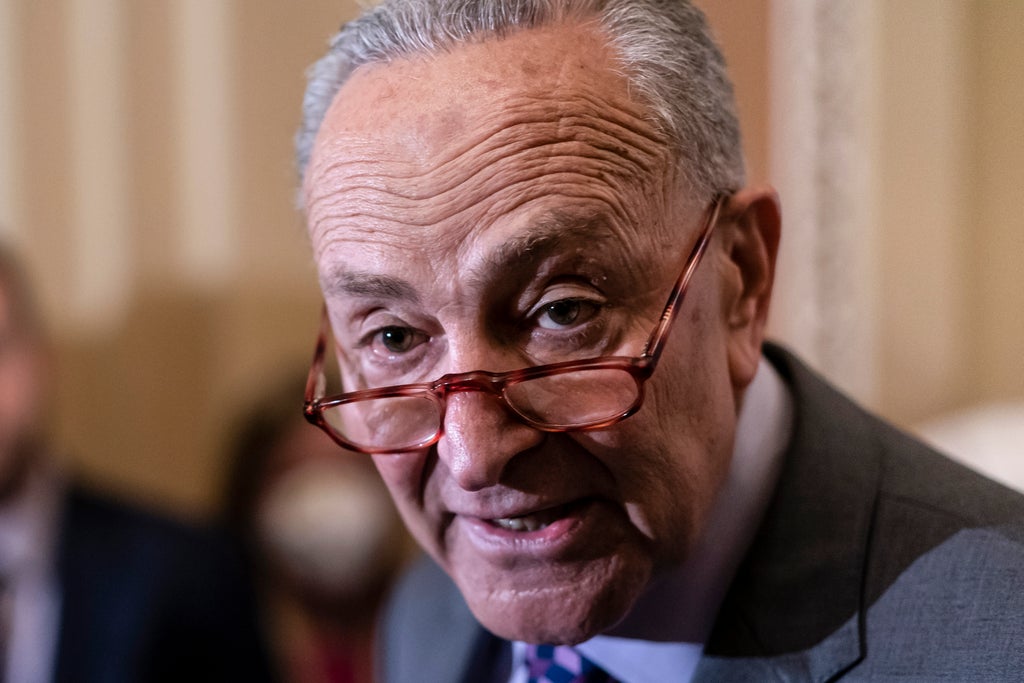
Senate Majority Leader Chuck Schumer made clear on Wednesday that he would force the Senate’s GOP members to vote on gun legislation in the immediate aftermath of the Uvalde massacre after initially indicating the opposite.
Mr Schumer first gave a statement to reporters on Wednesday morning that indicated he saw no hope for reaching a compromise on the issue with Republicans even after nearly two dozen were killed at an elementary school in Texas on Tuesday.
“Americans can cast their vote in November”, he told reporters when asked what the response to the deadly massacre in Uvalde, Texas would be.
Democrats “will continue to pursue this issue on our own” with the assumption that Republicans don’t want to help address the horror, he added.
That drew condemnation from critics on Twitter, who noted that the Senate had taken a vote on codifying Roe vs Wade just days earlier.
But in a floor speech hours later, he backtracked, declaring that he would bring amendments to existing national security legislation to the floor to put senators on the record.
Americans are “tired of the kind words offering thoughts and prayers,” Mr Schumer insisted. “We are going to vote on gun legislation.”
The Senate has long been where gun legislation ultimately fails. Democrats haven't managed to pass a meaningful piece of legislation aimed at restricting the widespread availability of guns in the US through Congress in decades, including even during a brief period when the party enjoyed a filibuster-proof majority under the Obama administration.
Now the party is relying on issues like gun violence and abortion to drive voters to the polls in November, when Democrats will defend their 50-50 majority (with the vice president’s tiebreaking vote) and seek to expand it.
But the party faces an uphill battle to keeping majorities in both chambers given the realities of midterm election politics as well as the lack of progress on Democratic priorities. The failure of the president’s key legislative agenda item, the Build Back Better Act, was the result of a rebellion from two centrist Democrats who many now say have squandered the Biden administration's chances of helping the party protect its own members.
The backlash against the centrist faction of the party has already led to a handful of right-leaning members losing primary elections amid district redrawings that followed the 2020 census.
Centrists like Joe Manchin in the Senate continue to face tough questions regarding whether they will continue to stymie their own party's efforts and whether there is any hope of the federal government taking meaningful action on any issue (besides the war in Ukraine) before voters return to the polls later this year.







